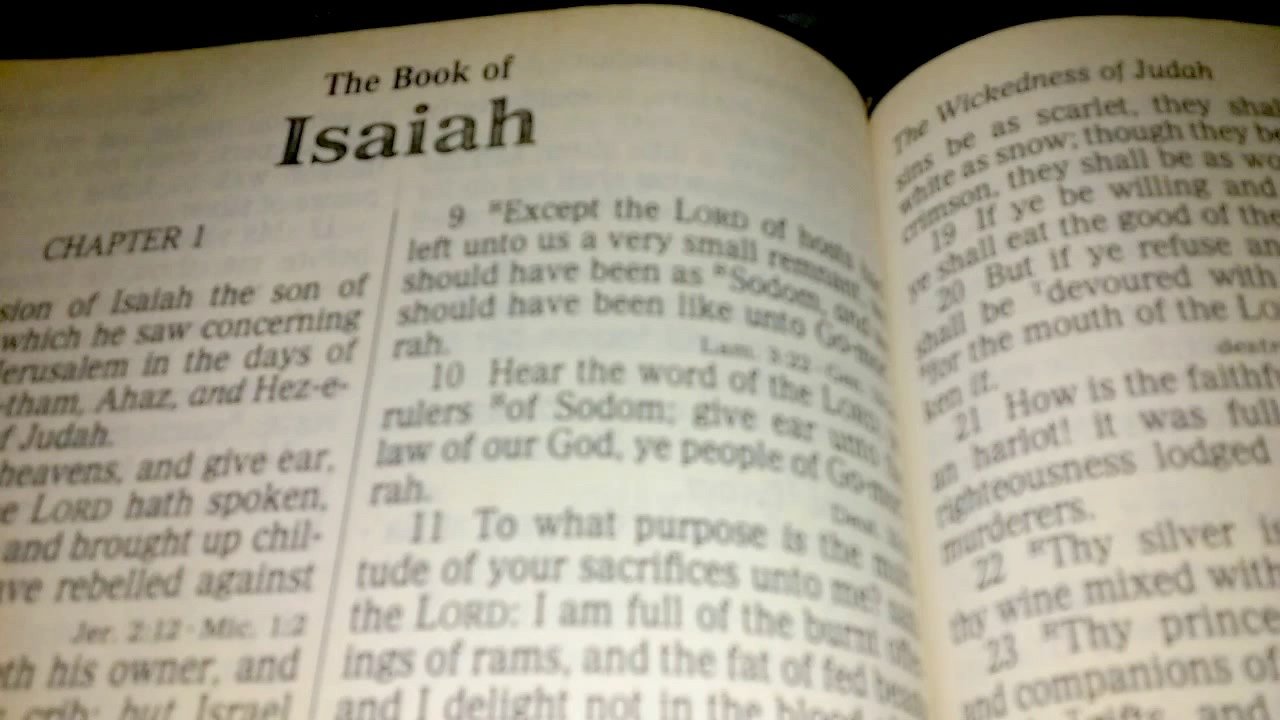GETTING THE MESSAGE/Isaiah 40:3-5
The context of these words is the prophet speaking comfort to a people who have been displaced from their homes and exiled from the temple of the Lord. Isaiah had prophesied in Chapter 39 the future fall of Jerusalem at the hands of Babylon.
Jeremiah, during the fall of Jerusalem, lamented that there was no comfort for Jerusalem. Judah, God's people, had desired to be like the world, and the Lord had given them over to the world, which Babylon was an emblem of. There is no comfort, no peace to be found there.
But God now speaks a word of comfort, a word of peace. He speaks tenderly to Jerusalem (verses 1-2). He says all her iniquity is pardoned, and blessing upon blessing is bestowed on her. How can these things be so?
Isaiah is given the words to explain it in our passage. These words refer to John the Baptist's testimony of Jesus, the Lamb of God; the promised Christ, who is Lord and God. John's father, Zechariah said of John (Luke 1): "You child, will be called the prophet of the Most High; for you will go before the Lord to prepare his ways, to give knowledge of salvation to his people in the forgiveness of their sins."
The "Most High" and "Lord" is the same person. John's "voice" cries to prepare the way of the Lord (verse 3). To "make straight in the desert a highway." is the language of preparing for a King. In this case the King is the Lord God. Yet he is also (as Isaiah wrote in Chapter 9), born a child for us, a son given to us.
So you have these two ideas of the King who is coming. He is a human king, a man born of a woman. Yet he is spoken of as the coming of the Most High God, which of course means the one and only God, the maker of heaven and earth.
Surprising, the Lord appointed John to announce his arrival or start of his ministry. John, who ate bugs and honey, and dressed crudely. Obviously, who the messenger is isn't the main point, but who he is pointing to. John makes the way for Christ. He does this by proclaiming the wrath of God upon the people, and then pointing to the Lamb of God, who takes away sin.
We see that the effect of the message is total transformation in verse 4: "Every valley shall be lifted up, and every mountain and hill be made low; the uneven ground shall become level, and the rough places a plain."
The world of men is described here; it isn't simply a broken world, it is a world under a curse. The pride of man is higher than mountains, the iniquity of man lower than hell. There is death, despair, and pain abounding. Despite this, it is a world where men continually assure themselves that if we do this we can be cured, or if we do that we can be healed.
John was sent to say to men that your plight is God's disposition toward your iniquity. He is saying prepare to meet your God, but in a way that says make terms. He is speaking of the tender mercy of God, because the salvation of God is in Jesus Christ, the Lord. All who call on the name of the Lord shall be saved.
God himself is your Savior. There is no amount of iniquity his atonement is not sufficient for. There is no devilish spirit he cannot vanquish in you. Christ is both Lord and God. Yet he is humble and meek, willing to give himself for sinners. He is a good King. You can give yourself entirely, body and soul, to him eternally. And enjoy the riches of peace with God.
There is a warning from this King though. A story in the Old Testament illustrates this. Adonijah, Solomon's brother, attempted to take the crown from Solomon, the rightful king. When his treason was discovered, he feared for his life and ran to the temple for sanctuary. He didn't want a trial; he sought mercy from the rightful king.
And Solomon granted it, yet he warned him that if he committed treason again, it would be his death. Christ, our King, gives free pardon out of his grace. He has fully paid for sins. But you can't be a Christian and not follow him as your King. Neither would you want to if you belong to him truly.

